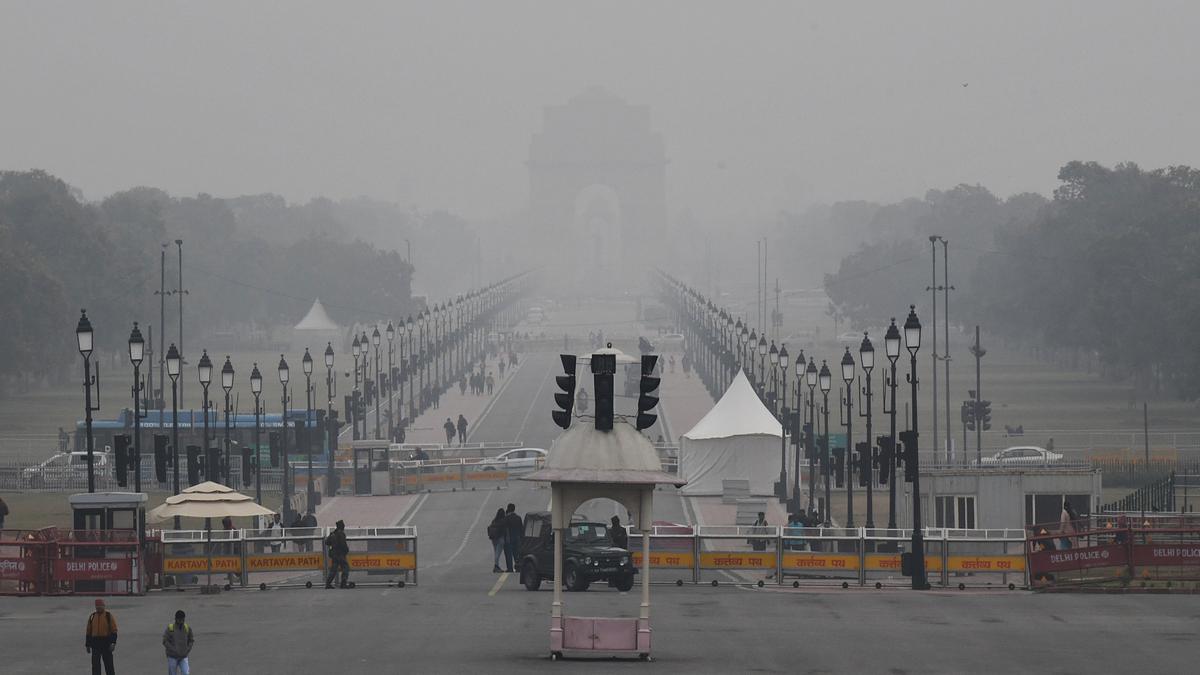 |
|
The Commission for Air Quality Management (CAQM) in Delhi-NCR made the timely decision to lift the stringent Stage 3 restrictions of the Graded Response Action Plan (GRAP) on January 12th, 2025. This decisive action followed a significant improvement in the Air Quality Index (AQI) resulting from a timely western disturbance that brought much-needed rain to the region. The improved air quality, a direct consequence of the rainfall, allowed the CAQM to alleviate the burden of the restrictive measures on residents and businesses. The swift response demonstrates the CAQM's commitment to adapting its strategies based on real-time air quality data and meteorological conditions. The temporary nature of these restrictions underscores the importance of ongoing monitoring and the adaptive nature of pollution control strategies in a region prone to fluctuating pollution levels. The decision highlights the effectiveness of GRAP in responding to severe pollution events while also showcasing the sensitivity to the needs of the populace once air quality improves.
The Stage 3 restrictions, implemented on January 9th, 2025, included a ban on construction and demolition activities, as well as restrictions on the operation of older petrol and diesel vehicles. These actions, while disruptive to daily life, were deemed necessary to curb the alarming rise in air pollution levels. The swift implementation of GRAP Stage 3 underscores the preparedness and responsiveness of the CAQM to address critical air quality deterioration. The immediate effect of the rains illustrates the significant impact of weather patterns on pollution levels, emphasizing the need for proactive measures coupled with effective emergency response plans. The careful monitoring of the AQI enabled the authorities to make a data-driven decision, allowing for the timely lifting of the restrictions as soon as air quality showed marked improvement. The lifting of the ban is a testament to the short-term effectiveness of GRAP in significantly improving air quality during periods of severe pollution.
The decision to maintain Stage 1 and Stage 2 measures highlights a balanced approach to pollution control. While the immediate crisis has passed due to the rainfall, ongoing efforts are still necessary to mitigate pollution in the long term. The continuation of these less stringent measures is a testament to the understanding that air quality management requires constant vigilance and sustained efforts, not only during periods of severe pollution, but also during times of relatively improved conditions. These ongoing measures could include promoting public transport, enforcing emission standards, and encouraging the use of cleaner fuels. The continued implementation of less restrictive measures indicates a commitment to sustained air quality improvement and responsible environmental stewardship. This approach ensures that while immediate challenges are addressed, the focus doesn't shift completely from long-term strategies vital for sustained positive change in Delhi-NCR’s environmental conditions.
The CAQM's actions demonstrate the practical application of the Supreme Court's directions to implement GRAP measures in response to alarming air pollution levels. The willingness to both implement and then revoke these emergency measures based on scientific data points to a responsible and responsive regulatory framework. This agility in responding to fluctuating pollution levels emphasizes the importance of dynamic and flexible pollution control strategies. It also reinforces the value of ongoing monitoring and data-driven decision-making in managing air quality effectively. The interplay between immediate emergency responses and long-term sustainable strategies is crucial for creating a healthier environment for the residents of Delhi-NCR. The CAQM's actions serve as a case study for other regions facing similar challenges, highlighting the benefits of integrated and adaptive air quality management approaches.
Looking forward, it is crucial to further investigate and implement measures to proactively prevent future instances of severe air pollution. Understanding the root causes of the pollution spikes and implementing long-term solutions are essential for mitigating future events and protecting public health. This includes stricter enforcement of pollution regulations, investing in cleaner energy sources, and promoting sustainable urban development practices. The temporary success of the GRAP restrictions underscores the need for comprehensive long-term strategies that can sustainably address air quality issues in Delhi-NCR, going beyond temporary emergency measures. The integration of technological advancements, public awareness campaigns, and stringent regulatory actions will be critical in creating a lasting solution to this environmental challenge.
Source: GRAP 3 revoked in Delhi-NCR after dip in air pollution levels
